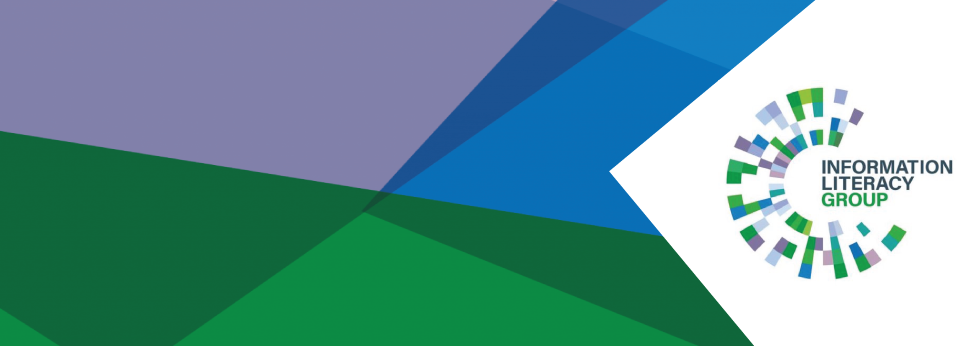
In his latest blog post, Stéphane Goldstein of InformAll provides an insight into the opportunities and challenges of his role as Advocacy & Outreach Officer for the CILIP Information Literacy Group, and gives an update on his recent activities in support of our work to promote information literacy.
One of the key functions of CILIP’s Information Literacy Group (ILG) is to promote information literacy to as many audiences as possible, especially beyond the library world. To this effect, I was appointed as ILG’s Advocacy and Outreach Officer in November 2015. So what have I been up to of late?
It’s easy to imagine that promoting information literacy is about attending one high-level conference after another. Well, that’s one way of doing it but, in reality, the job tends to be much more low-key, involving the building up of one-to-one relationships with players in a range of organisations… and endless emails and phone calls to achieve this. Patience is required too, because it may sometimes take months to identify a contact and arrange a meeting – whose outcome is never guaranteed. The challenge is to put it IL on the mind-map of organisations, to persuade them of its relevance to their respective agendas and to explore whether there are any grounds for influencing them – or even better, to develop collaborations or partnerships. The key to this is to present IL in terms that chime with the contexts in which these players operate. This usually means talking about concepts which overlap with IL, but which are termed differently: digital literacy, media literacy, news literacy, critical literacy, etc. I am not precious about the terminology that I use; it’s more important to use language that my interlocutors can relate to rather than be fixated on ramming a rigid and library-centric view of IL down their throats. In this respect, the context-driven revised definition of IL that CILIP published in 2018 has proved helpful.
I shan’t bore readers of this blog with a long catalogue of the individuals that I’ve had discussions with. Instead, I’ll give a flavour of what advocacy and outreach involves by briefly describing key areas of engagement over the past few months.
A prime audience is the machinery of government. DCMS – the Department for Digital, Culture, Media and Sport – is the Department that takes the lead on issues around the digital economy and digital literacy. Over the past year, CILIP CEO Nick Poole and I have established a dialogue with their grandly-named Counter Online Manipulation Security and Online Harms Directorate. They take the lead in co-ordinating Government activities in the area of disinformation, and we have met with them on several occasions, most recently in September 2019, to stress the role that information professionals play in helping to support digital literacy. When DCMS published its Online Harms White Paper in April 2019, I contributed the IL elements of CILIP’s corporate response. As a follow-up, I wrote an article explaining the issues for the June 2019 issue of Information Professional. A key recommendation of the White Paper is the development of a national Online Media Literacy Strategy, and in In June, I was invited to a DCMS workshop to help inform the next steps towards the formulation of the Strategy; a further such workshop is expected in the next month or two.
Somewhat less successful has been the dialogue with DfE, the Department for Education. Sarah Pavey – one of the ILG’s school libraries experts – and I have been trying to engage with officials there to discuss: the school curriculum and how this addresses (or, more to the point, fails to address) information literacy and critical thinking; and the role of school libraries in this area. We met a DfE representative in March, but the conversation was not particularly fruitful, since the Department is not able to consider any changes to the curriculum for several years. We are currently trying to arrange a meeting with another DfE civil servant, who this time oversees the citizenship curriculum, in the hope that particular area will chime more with questions around critical thinking and news literacy.
Still on the subject of schools, a more useful exchange took place over the summer with TheSchoolRun. This is a resource and network for primary-school parents who want to help their children with their education. I met their Editorial Director at a parliamentary reception in June. Following this initial contact, it was agreed to contribute to an article, to be published on their website, on information/digital literacy in primary schools. Sarah Pavey, Elizabeth Hutchinson and I worked with TheSchoolRun’s freelance writer to draft this piece, which was published in September 2019. It was gratifying to do this as it broadens our reach to parents of school children, a community with which ILG has not really engaged previously.
Another highly relevant public agency is Ofcom, the UK media regulator, which has a statutory responsibility for investigating media literacy, notably through their Making Sense of Media programme. Here too, along with Jane Secker, the ILG Chair, I have been in dialogue with a range of their officials over the past year, including people from their Standards and Audience Protection Team. They now recognise the synergy between their work and that of librarians. They are currently looking to improve and expand the programme, and to this effect have set up an advisory panel, to which I have also been invited. This has now met twice, in July and in October. In addition to helping to influence the agenda of a significant player, participating in such committees provides excellent opportunities to engage with other relevant stakeholders, such as Google, Facebook, the BBC (of which more below), the National Literacy Trust, Full Fact and Internet Matters, all of which are represented on the panel. Additionally, in July, Ofcom organised an open forum to present the programme to a wider audience; I was not able to attend, but ILG was represented on the day by CILIP Trustee Caroline Carruthers – a useful way of implicating a Board member in ILG’s efforts.
There have been interesting conversations too with two different departments at the BBC. In early October 2019, I had a meeting with a journalist and two staffers from BBC Monitoring, which incorporates a small team dedicated to monitoring disinformation and fake news worldwide. They have had some previous dealings with CILIP, but this was their first opportunity to find out about librarians’ involvement with IL. They are open to the idea of working on joint projects of mutual interest, and in taking part in LILAC: the Information Literacy Conference next year. I have had separate contacts with the team behind BBC Young Reporter, which works in partnership with schools to provide young people with the skills needed to understand and create the media – with obvious implications for news and media literacy. They run an annual competition for 11-18 year olds, and we have recently helped to publicize this through various library channels.
And finally, contacts can sometimes be of a more political nature. In July 2019, I met the parliamentary assistant of Tom Watson MP, Shadow DCMS Minister – and one of the rare politicians to have expressed informed views on digital literacy and critical thinking. As well as presenting CILIP and talking broadly about IL, the meeting was an opportunity to suggest two particular ideas: (i) finding ways of ensuring a more explicit recognition of the importance and value of IL and associated literacies in policy-making, particularly in the context of the challenges posed by disinformation, but also to help foster a healthier democracy; and (ii) considering the possibility of a parliamentary event where, jointly with a range of relevant organisations, we might present the case for promoting these literacies in the public realm. It would be nice to think that such ideas can get some traction, but the current Brexit-related political instability makes it difficult for politicians to commit to these sorts of initiatives.
This is just a snapshot of advocacy and outreach activities. At a more micro level, there are always conversations, often short-lived, that take place on the margins of conferences and other events. Thus, in addition to the organisations on the Ofcom panel that I’ve mentioned above, I’ve recently had occasion to speak to people from NewsWise (another initiative aimed at fostering news literacy among young people), the Royal Society of Arts, the Wellcome Collection, NetIKX: the Network for Information and Knowledge Exchange, among others.
So what is the impact of all this? It’s not an easy question to answer. Sometimes, the impact is near zero; some conversations just do not generate any real interest, and follow-ups are met with frustrating silence. But in most cases, there is the satisfaction of knowing that the individuals I speak to have learnt at least a little bit about IL and the role of information professionals. And in many cases, there are opportunities to make the voice of the library community heard in different fora; to suggest ideas; to influence policy developments; to contribute to joint initiatives; to ensure that CILIP and/or ILG are remembered as relevant and valuable interlocutors. These are small, incremental steps where outcomes may not always be obvious, or may not materialise for a long time – but they are necessary steps. Where possible, we at ILG work with CILIP at a corporate level, and I’ve mentioned instances where we’ve approached things jointly with them. And we are always open to new ideas about who to engage with. Please contact us if you have any thoughts or suggestions, and I would be more than happy to have a chat!
Stéphane Goldstein
08/10/2019

